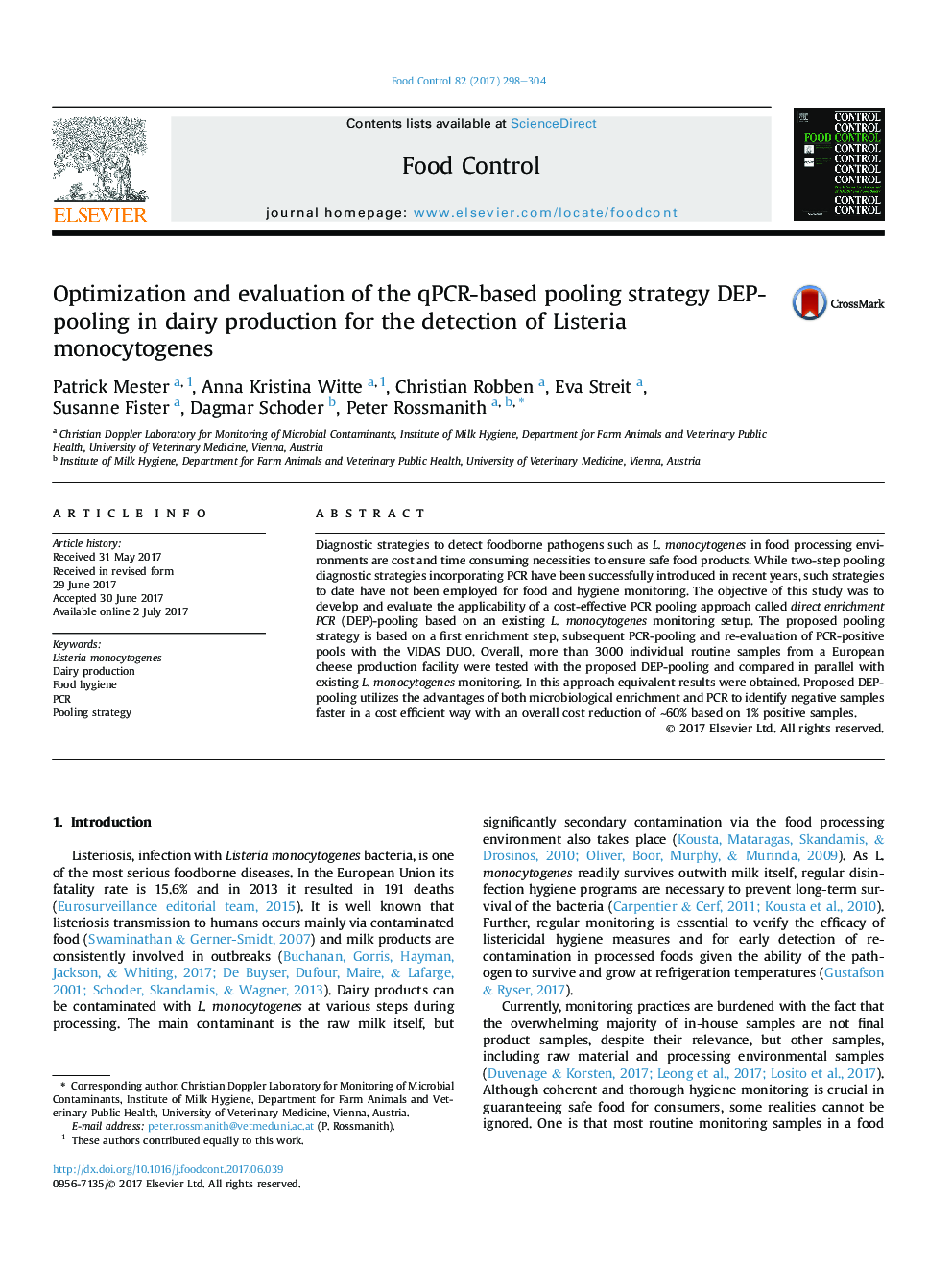| Article ID | Journal | Published Year | Pages | File Type |
|---|---|---|---|---|
| 5767163 | Food Control | 2017 | 7 Pages |
â¢High-throughput screening for the fast exclusion of negative samples.â¢Cost reduction using DEP-pooling.â¢Proof-of-principle of DEPP with artificially and naturally contaminated systems.â¢Improved food safety by combining microbiological and molecular biological methods.
Diagnostic strategies to detect foodborne pathogens such as L. monocytogenes in food processing environments are cost and time consuming necessities to ensure safe food products. While two-step pooling diagnostic strategies incorporating PCR have been successfully introduced in recent years, such strategies to date have not been employed for food and hygiene monitoring. The objective of this study was to develop and evaluate the applicability of a cost-effective PCR pooling approach called direct enrichment PCR (DEP)-pooling based on an existing L. monocytogenes monitoring setup. The proposed pooling strategy is based on a first enrichment step, subsequent PCR-pooling and re-evaluation of PCR-positive pools with the VIDAS DUO. Overall, more than 3000 individual routine samples from a European cheese production facility were tested with the proposed DEP-pooling and compared in parallel with existing L. monocytogenes monitoring. In this approach equivalent results were obtained. Proposed DEP-pooling utilizes the advantages of both microbiological enrichment and PCR to identify negative samples faster in a cost efficient way with an overall cost reduction of â¼60% based on 1% positive samples.
